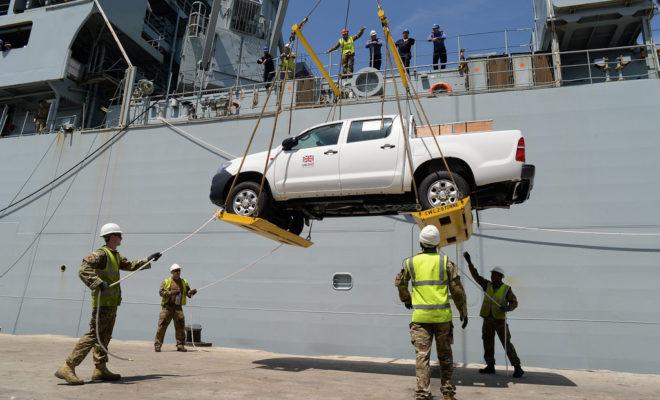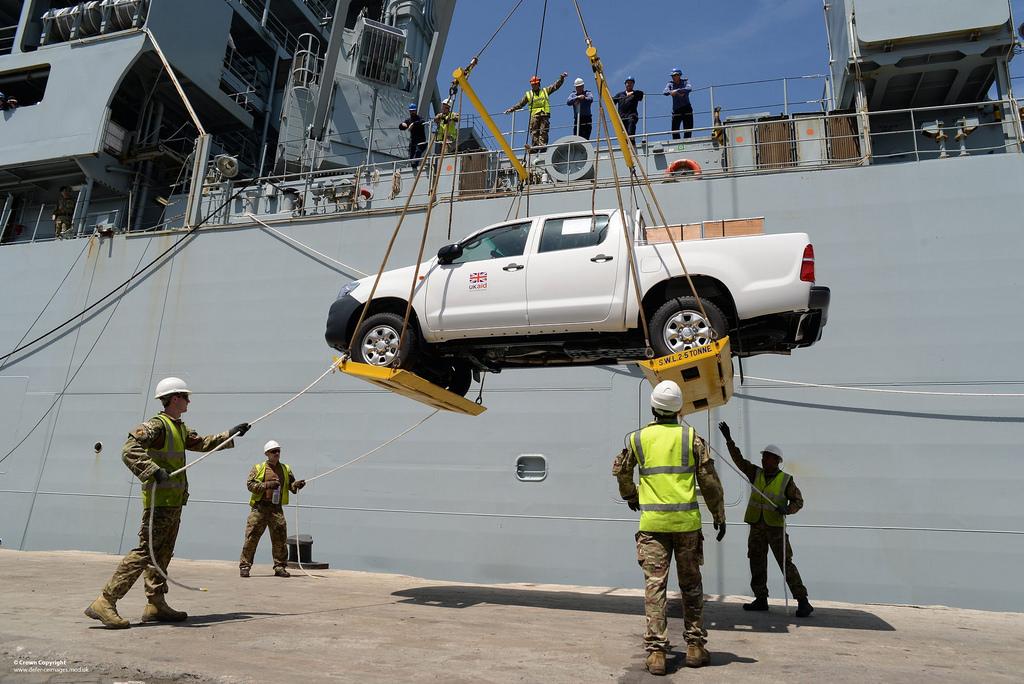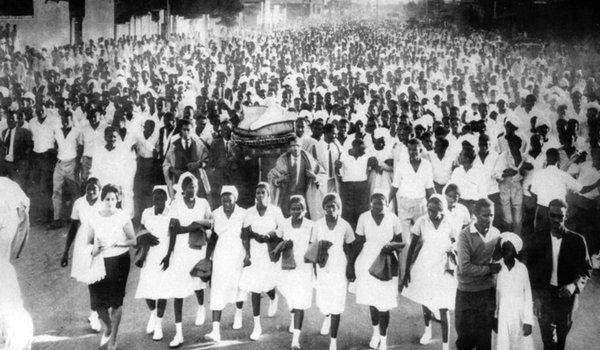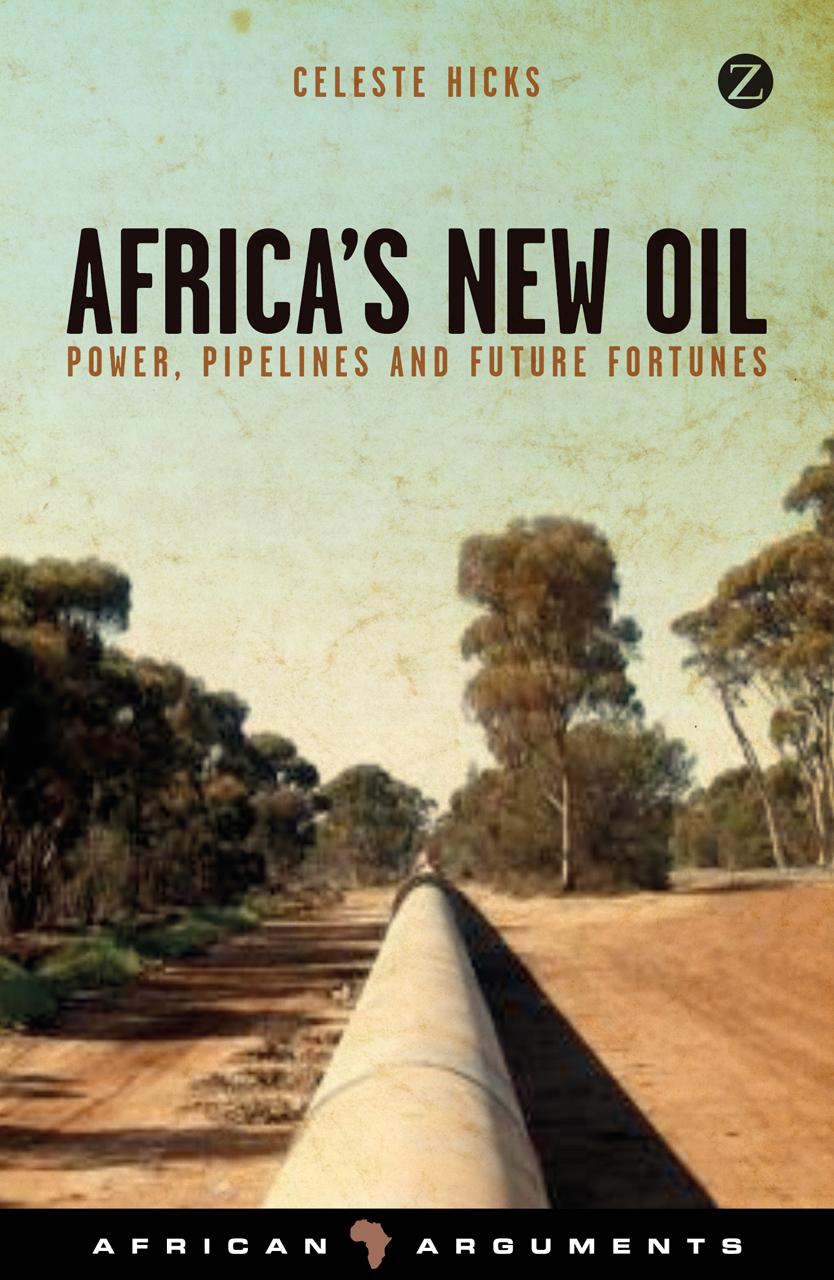Brexit offers Sierra Leone chance to reassess the aid relationship

Brexit will undoubtedly affect the UK’s donor relationship with Sierra Leone, but this debate takes away from the crucial issue: improving trade.

A UK Department for International Development (DfID) truck is unloaded in Freetown, Sierra Leone. Credit: Staff Sergeant Tom Robinson RLC.
In the wake of its decision to leave the European Union, it is reassuring that the UK last month committed to strengthen its trade relationship with Sierra Leone and reaffirmed its £240 million ($320 million) pledge to support Ebola recovery.
As the UK goes through a period of flux, it would be easy to forget that the effects of Brexit will not be confined to Europe. The emerging but fragile economies of Africa will also be looking on intently. West Africa’s economies remain among a dwindling group forecast to continue growing at between 5-7%. Brexit threatens this trajectory and brings the donor relationship into focus.
Take Sierra Leone. The 2014-15 Ebola crisis highlighted the sheer number of development actors involved in the country. Some were purely engaged on a humanitarian basis during the outbreak, but many remain, working on a vast range of development projects with the EU and UK particularly prominent. This work is, for the most part, hugely beneficial for Sierra Leone and its people. But in the long-term, this cannot be a sustainable model.
Challenges such as Brexit should be framed in terms of trade implications, not those related to development aid. We in Sierra Leone must take control of our own development, streamlining the processes by which external development actors engage and ensuring efforts can be targeted at sectors the government has itself identified as strategic priorities.
In 2015, financial aid to Sierra Leone hit $1 billion – the equivalent of 20% of GDP and more than double the government’s annual budget. No sector, not even the still underutilised mining sector, can generate the income levels aid represents at present. But the aim must be an economic policy geared towards incrementally raising internal and private sector revenue to allow the gradual dialling down of aid.
Let’s take the World Bank’s current development assistance to Sierra Leone. Its current aid package is in line with the government’s “Agenda for Prosperity”, channelling approximately $160 million to a range of development projects over the next two years. $40 million will go to agricultural reform, a sector in which even small advances in mechanisation and infrastructure could have a huge impact. Agriculture has enormous potential both within the domestic market and through exports, with the prospect of vastly increased revenue. The sector should be self-sustaining within a decade. Mining and energy hold similar prospects.
Aid will, and must, continue in the medium-term. It can still be the trigger and foundation for private sector development and crucial jobs creation. So any great cut in financial support at this stage would be a disaster. But that doesn’t mean we shouldn’t be planning for long-term independence. We are grateful for the support aid has given our country but it also creates huge instability and volatility. We must look to move away from this.
The Sustainable Development Goals (SDGs) offer one route here. In addition to developing domestic industry, diversifying the way we engage with development funders is a growing opportunity. The SDGs have triggered new thinking in relation to aid finance. Options such as blended finance and new public-private partnerships are also proving attractive for governments looking to transition from aid to commercial investment.
Ebola and the downturn in global commodity prices put pay to Sierra Leone’s rapid year-on-year economic growth, but private money is still flowing into West Africa, not least into mining, infrastructure and agriculture. This must be managed to best support real inclusive growth.
Britain has been a hugely positive and progressive development partner for Sierra Leone. Furthermore, its role in driving development policy and funding at the EU level has also been critical. Brexit will undoubtedly affect the donor relationship with Sierra Leone and West Africa, but this debate takes away from the crucial issue: improving trade.
[The African trade revolution quietly afoot]
The UK government has already highlighted the opportunities Brexit may bring in allowing the UK to diversify its trade relationships, not least with emerging market partners. This could be an opportunity for countries such as Sierra Leone to trial the reset button on donor relations and build a new bilateral relationship focused more on trade. Out of crisis, opportunity often emerges.






